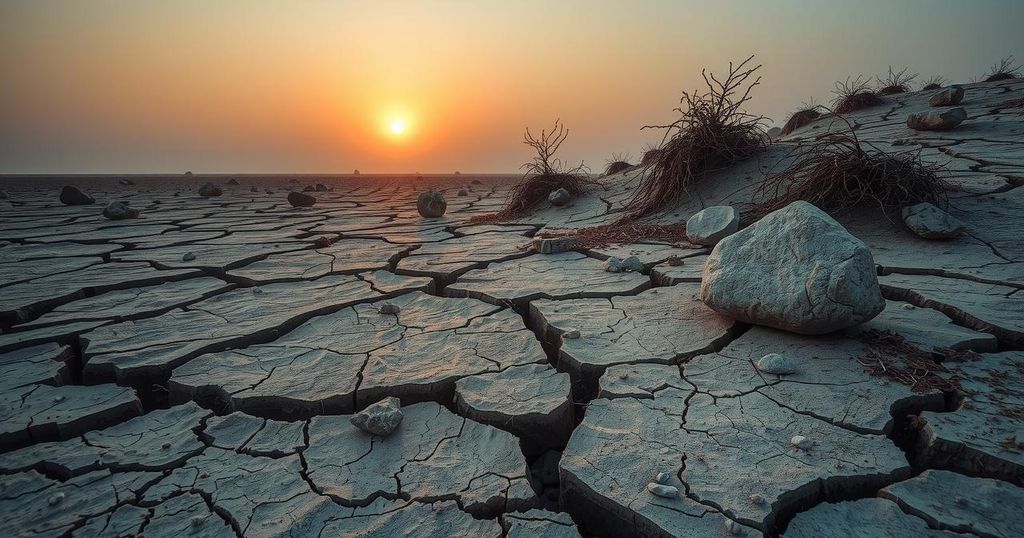Recent research has found that if global warming reaches 2 degrees Celsius, extreme heat could endanger vast regions of the Earth, particularly North Africa and South Asia, with higher risks for younger and older populations. The study highlights health threats stemming from climate change and the urgent need for mitigation efforts to limit temperature increases.
Current research indicates that global warming poses significant threats, leading to extreme heat conditions potentially affecting vast areas of the Earth. Scientists predict that should warming reach 2 degrees Celsius, an area comparable to the size of the United States could face temperatures hazardous to human health. This trend highlights the urgency of addressing climate change, as last year alone saw over 1,300 fatalities during the hajj pilgrimage in Saudi Arabia due to soaring temperatures of 51.8 degrees Celsius (125 degrees Fahrenheit). According to the study published in the journal Nature Reviews Earth and Environment, regions in North Africa and South Asia are particularly vulnerable, with heat and humidity levels increasing dangerously since 1994.
The research illustrates a troubling expansion of regions experiencing unsafe temperature levels. By analyzing the data from 1994 to 2023, researchers determined that about 2% of the global land area posed risks for individuals under 60, while this figure escalated to around 20% for older populations. Lead author Tom Matthews emphasizes the potentially fatal repercussions of surpassing 2 degrees Celsius above pre-industrial temperatures, underscoring the importance of the Paris Climate Agreement to limit global warming to below this threshold.
If warming reaches the 2 degrees Celsius mark, predictions indicate that area deemed unsafe for younger adults could triple to approximately 6%. Alarmingly, one-third of the Earth’s landmass would be problematic for individuals aged over 60. Prolonged exposure to extreme heat, even in shaded or breezy environments, can lead to lethal heatstroke, drawing attention to the health risks associated with climate change. Heat stress occurs when the body’s cooling system fails, leading to severe health complications from dizziness to organ failure.
Historical data illustrates the severe implications of heatwaves, particularly in Europe, where heat-related deaths surpassed 70,000 in 2003 and remain high, with over 60,000 fatalities recorded in 2022. The deadly influence of heat is also evident in Asia, especially in India and Pakistan, where thousands perished during overwhelming heatwaves in 2015. Notably, heat-related deaths in Africa are frequently underreported, though recent events in Nigeria highlight the continent’s struggles with extreme temperatures. The World Health Organization estimates that heat results in approximately half a million annual deaths, suggesting that actual figures may be significantly higher.
The ongoing impacts of climate change are increasingly evident, with a rise in extreme heat conditions leading to numerous health crises worldwide. This research reveals that global warming risks posing deadly heat to vast regions of the planet, particularly threatening younger and older populations disproportionately. Critical studies played a role in understanding how climate change intersects with human health, emphasizing the importance of international agreements like the Paris Climate Agreement to mitigate the effects of rising temperatures.
In summary, the research sheds light on the grave risk posed by rising global temperatures, potentially exposing vast areas to unhealthy and lethal heat levels. The findings call for urgent preventative measures to limit global warming and protect vulnerable populations from emerging health threats caused by climate change. Ultimately, addressing these climate challenges is crucial to ensure the safety and survival of future generations.
Original Source: www.cp24.com




